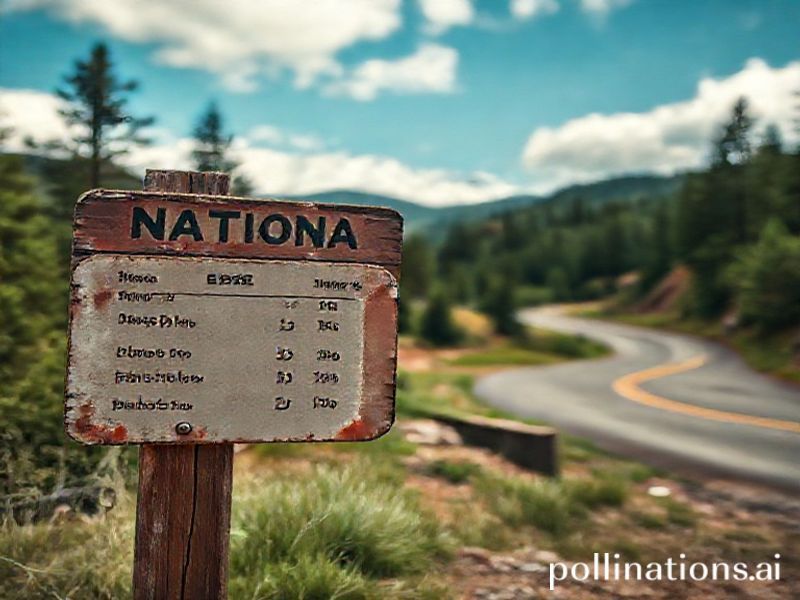National Parks Fees: The Great Outdoors or the Great Outdoors’ Paywall?
**Title: “National Parks Fees: The Great Outdoors or the Great Outdoors’ Paywall?”**
Alright, folks, let’s talk about something that’s been trending globally and has more people up in arms than a viral TikTok dance challenge—national parks fees. Yes, you heard it right. The cost of enjoying Mother Nature’s finest work has become a hot topic, sparking debates, memes, and even petitions. So, why is this suddenly the talk of the town? Let’s dive in.
**The Cultural Context: Nature’s VIP Section**
Imagine this: You’re scrolling through Instagram, and bam! Stunning pictures of Yosemite, the Grand Canyon, or the Serengeti pop up. Everyone’s out here living their best life, exploring the great outdoors, and you’re stuck at home dreaming of that fresh mountain air. But here’s the catch—some of these dreamy destinations come with a price tag that could make your wallet weep.
National parks fees have been a thing for ages, but recently, they’ve been hiked up, and people are noticing. The U.S. National Park Service, for instance, has been increasing fees to tackle maintenance backlogs and improve facilities. But with entry fees for popular parks like Yellowstone and Zion now costing up to $35 per vehicle, it’s got folks asking, “Is nature becoming a luxury only the rich can afford?”
**The Social Impact: Who Gets to Enjoy the Great Outdoors?**
The fee hikes have sparked a significant debate about accessibility. National parks are supposed to be for everyone, right? A place where you can escape the hustle and bustle of city life, breathe in some fresh air, and maybe even spot a bison or two. But when the cost of entry starts to rival a fancy dinner for two, it’s hard not to feel like the great outdoors is turning into an exclusive club.
This isn’t just an issue in the U.S. Countries like Australia, Canada, and even the UK have seen similar trends, with entry fees and parking costs making it harder for families and low-income individuals to enjoy their natural heritage. It’s a global phenomenon that’s got people questioning who really gets to enjoy the great outdoors.
**The Significance: More Than Just a Fee Hike**
At its core, the debate about national parks fees is about more than just money. It’s about values, priorities, and the kind of society we want to live in. Are we okay with turning our natural wonders into pay-to-view attractions? Or do we believe that everyone, regardless of their bank balance, should have access to the beauty and benefits of nature?
The trend has also highlighted the importance of public funding for national parks. Many argue that if governments invested more in these parks, they wouldn’t have to rely so heavily on entry fees. It’s a classic case of “pay now or pay later,” and right now, the “later” seems to be catching up with us.
**The Internet’s Response: Memes, Petitions, and Viral Debates**
Of course, the internet has had a field day with this topic. Memes about “paying to see a rock” have gone viral, and petitions demanding fee reductions have been circulating. Social media platforms are buzzing with debates, with some arguing that the fees are necessary for maintenance and others advocating for alternative funding sources.
The trend has even sparked some creative solutions. Some parks have started offering free entry days, while others are exploring dynamic pricing models. It’s a work in progress, but one thing’s for sure—the conversation is far from over.
**Conclusion: The Future of National Parks**
So, where does this leave us? Well, it’s clear that national parks fees are a complex issue with no easy answers. But one thing’s for sure—they’re not going away anytime soon. As more people become aware of the debate, the pressure will be on governments and park authorities to find a balance between funding and accessibility.
In the meantime, we can all do our part. Whether it’s advocating for better funding models, supporting conservation efforts, or simply spreading the word, we can help ensure that the great outdoors remains just that—great and accessible for all.
After all, nature shouldn’t be a luxury. It should be a right.







